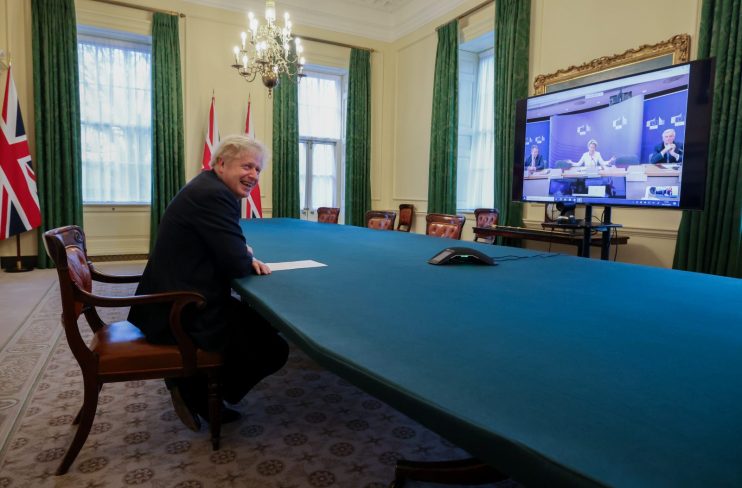Westminster needs to get a grip and learn some digital skills

In the last year, the Queen convened her historic Privy Council by video, parliamentarians have voted online and the Cabinet has been meeting via Zoom. Even the hardened leaders of the country in Westminster and Whitehall have had to adapt to different ways of working because of Covid. This will be particularly useful as many politicians and civil servants are on their August holidays, working remotely away from the physical corridors of power.
Yet despite this seeming revolution in flexible working, underneath the sheen, there still lies a disturbing level of digital incompetence in the upper echelons of government and politics. This has only been highlighted by a number of high-profile episodes. Take for example, the NHS Test and Trace service, which cost an extraordinary £37bn of public money. Or last year’s exams fiasco whereby a computer algorithm downgraded the A Level and GCSE results of many pupils, especially at state schools.
Today our finances, healthcare and identities have all been digitised, technology companies wield unimaginable power and entire countries are at threat of cyber attacks. It doesn’t take much to imagine the policy blunders to come if we don’t radically address the digital illiteracy of our political leaders.
A big dose of tech savvy is urgently needed in Whitehall. In my years as a non-executive at the Business Department, I witnessed plenty of goodwill on digital literacy. Indeed there are some world-leading areas of innovation in UK government, such as the Government Digital Service and GCHQ, whose work is respected and emulated across the globe. But I saw nothing with the scale, scope and urgency required to make government a truly digitally skilled and literate organisation.
Starting at the top, if you look at the educational background of our Cabinet Ministers, many of them studied subjects such as PPE and the arts at Oxbridge. The Prime Minister studied Classics, as did I. And whilst the classics may give a sophisticated grounding in history, politics and empire, I am strongly of the belief that it is only by understanding code and by becoming fluent in the cultures of the digital world that a leader can navigate the corridors of power today.
During the US Congressional hearings in 2018, one Senator famously asked Mark Zuckerberg, “How do you sustain a business model in which users don’t pay for your service?”. The Facebook founder replied, “Senator, we run ads.”
At Decoded, we’ve taught code, data and cyber skills across pockets of the UK government and last year, we started to work with the US Senate on a programme of digital literacy for its senators and policy makers. Some digital enlightenment was needed in Washington.
So what will it take to get Whitehall to swot up? A congressional hearing? A massive cyber- attack on the UK? More than anything, our policy makers need to understand that it will only be through technological advances and digital skills that the UK will achieve its most ambitious goals.
Take for example, the goal of reducing greenhouse gas emissions to at least 100 per cent lower than 1990 levels by 2050. The so-called Net Zero target can be achieved through technologies such as carbon capture and electric batteries. Or take the governments’ aspiration to create a fairer society through “Levelling Up”, which can be better achieved through advanced data analytics allowing us to more evenly distribute the goal of 2.4 per cent of GDP to be invested in R&D nationwide. Breakthrough technologies such as DeepMind’s Alphafold can predict protein structures with incredible speed and accuracy. We have the potential to transform the wellbeing not only of the nation but of the entire world with technologies developed right here in the UK.
So come September, it’s not just the kids who need to get back to school. Whitehall needs to get back in the classroom too. It is time for them to roll their sleeves up, be unafraid to ask stupid questions and learn some new skills. Otherwise, the only Net Zero the UK will meet will be zero marks for our post-Covid economy.